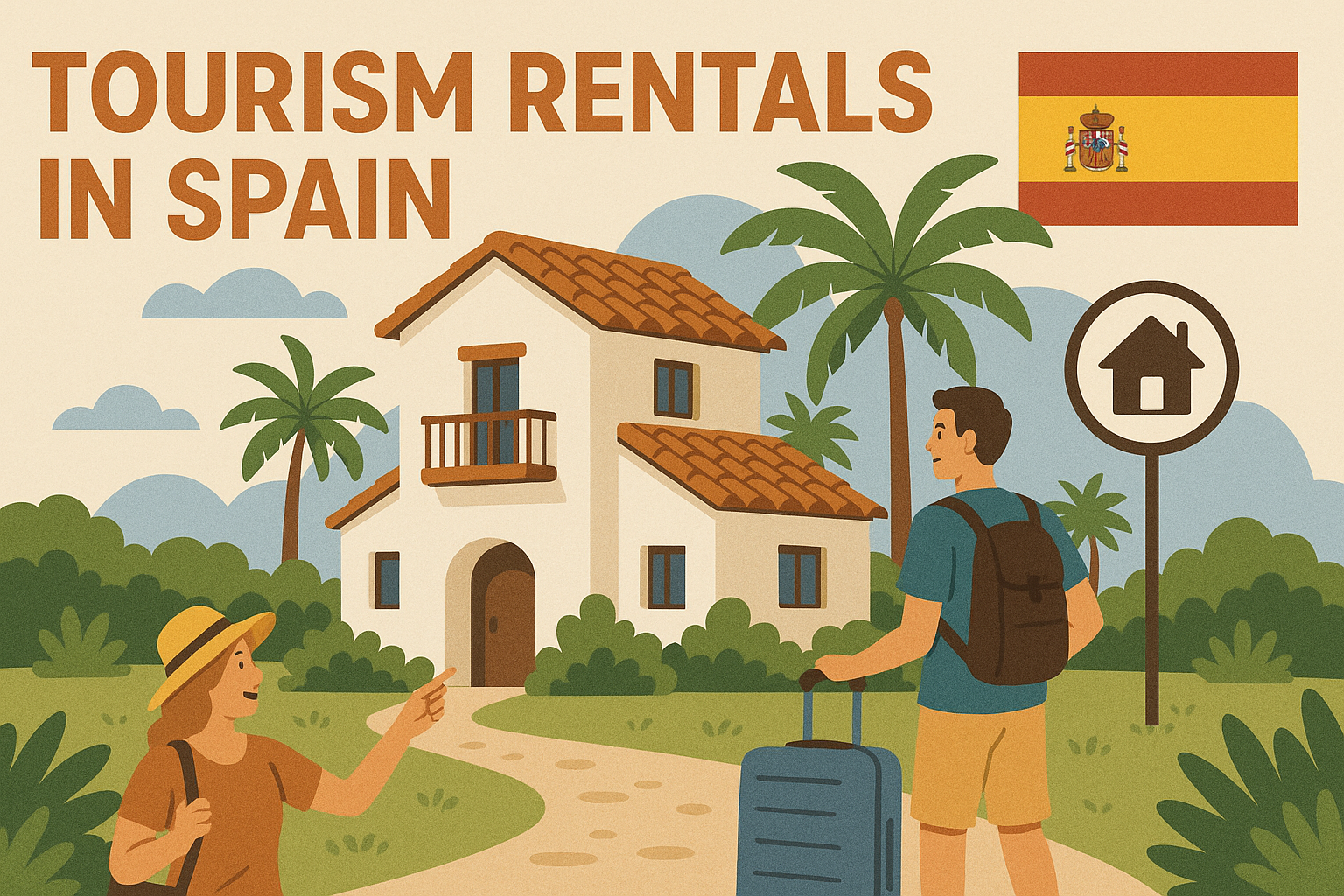SPAIN’S housing crisis has entered a new phase of uncertainty and tension as sweeping reforms to tourist rental laws took effect on April 3, 2025.
The changes, driven by the new Organic Law 1/2025, significantly tighten regulation of short-term rentals, aiming to balance the interests of residents, property owners, and the booming tourism sector.
New Rules for Tourist Rentals
Under the new law, any property owner wishing to offer their home as a tourist rental must now obtain explicit approval from their building’s homeowners’ association (Comunidad de Propietarios). This approval requires a three-fifths majority vote of both owners and ownership quotas at a duly constituted meeting.
If the majority is not reached, the community can demand the immediate cessation of the activity and may even pursue legal action.
READ MORE:
- Is Malaga the new Barcelona?: Olive Press Property Insider Adam Neale revisits a question he first posed for us a decade ago
- Real estate regulations in Dubai should serve as a model for Spain, writes property expert ADAM NEALE
- Looking good! 2025: Another strong year coming on the Costa del Sol, writes Olive Press Property Insider Adam Neale
The law does not apply retroactively: properties already operating as tourist rentals before April 3, 2025, can continue under the previous framework, provided they were legally licensed. However, all new tourist lets – including those purchased from previous owners – must comply with the stricter rules.
National registry and fines
In addition to community approval, all tourist rentals must be registered with Spain’s new national registry (Registro Único) by July 1, 2025. Owners must provide detailed property information and obtain a unique license number, which must be displayed on all listings, including platforms like Airbnb. Failure to comply can result in fines up to €600,000, depending on the region.
Homeowners’ associations gain power
Communities now have the authority to:
- Approve, limit, or prohibit tourist rentals within their buildings
- Impose up to 20% higher community fees on properties used for tourist rentals, without needing to prove increased service usage
- Enforce these rules through legal channels if necessary
This shift has sparked concern among property owners, who fear the potential for abuse or arbitrary fee hikes, especially in buildings where consensus is hard to reach.
Market Impact and Housing Shortage
The reforms come amid mounting public anger over housing costs and the impact of mass tourism. Spain welcomed nearly 100 million foreign visitors in 2024, with demand for tourist accommodation rising three times faster than for hotels. This surge has fueled speculation, driven up rents and home prices, and reduced the supply of long-term housing for locals.
In response, cities like Barcelona have announced plans to phase out tourist rental licenses by 2028, while other regions are introducing quotas, bans, and new taxes on foreign buyers. Despite these measures, the housing deficit remains acute: experts warn Spain faces a shortfall of up to 2.7 million homes in the coming decades, driven by high land and construction costs, slow planning processes, and strong demand.
Social unrest and political pressure
The new law was introduced after more than a year of mass protests across Spain. On April 5, just two days after the law took effect, hundreds of thousands marched in over 40 cities demanding affordable housing and greater regulation of tourist rentals. Protesters blame both landlords and government inaction for soaring rents and evictions, with slogans like “Get Airbnb out of our neighborhoods” echoing nationwide.
Spain’s government, under intense pressure, has promised further action – including new public housing, rent caps, and even a proposed 100% tax on property bought by non-EU residents. However, critics argue that targeting tourist rentals alone will not resolve the underlying housing shortage, which is rooted in years of underbuilding and complex political wrangling.
Outlook
As the summer tourist season approaches, confusion and anxiety persist among property owners, residents, and investors. While the new law aims to restore balance between tourism and local needs, its effectiveness will depend on enforcement, community cooperation, and broader efforts to boost housing supply. For now, Spain’s housing chaos shows no sign of abating, with the battle over tourist rentals at its heart.







